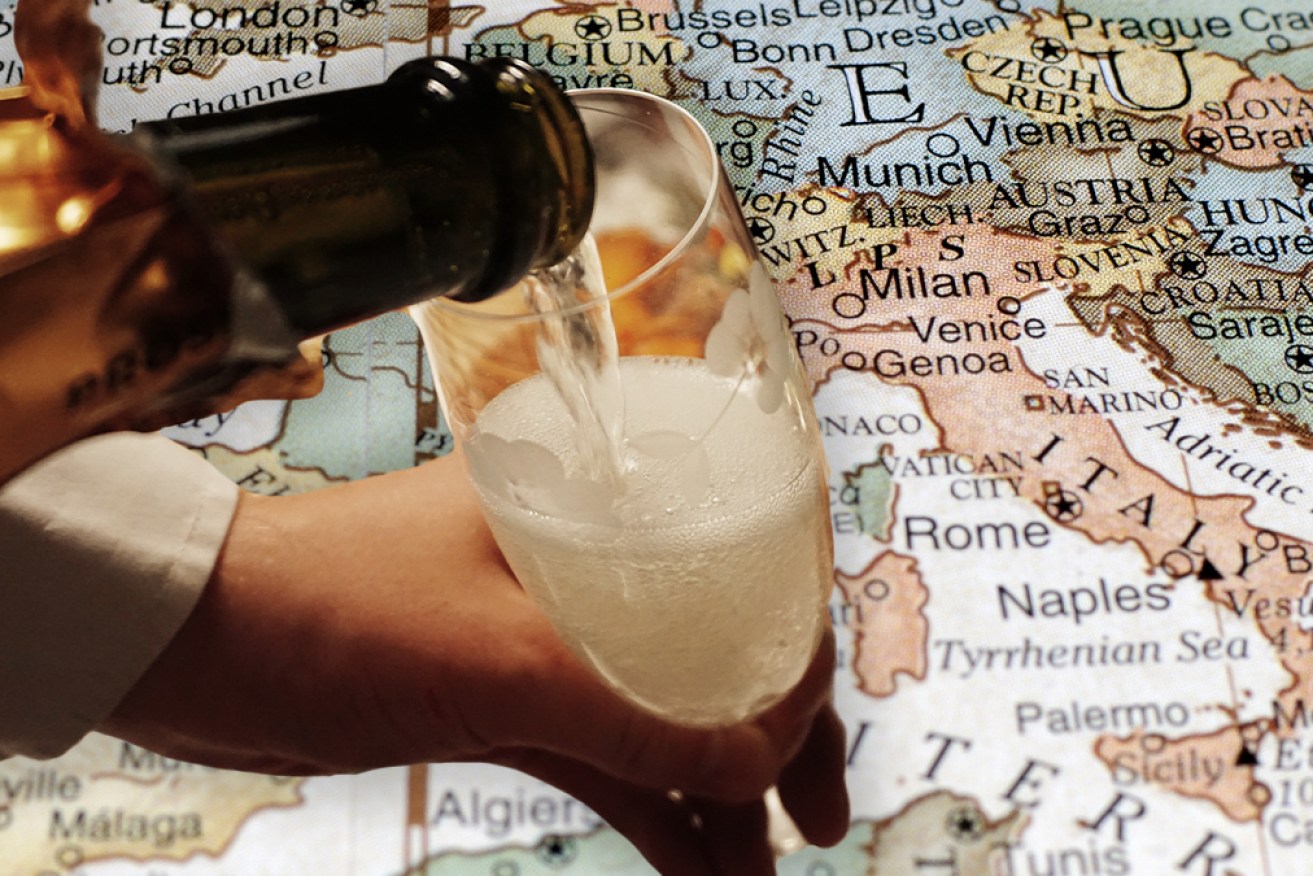Prosecco, feta and more: EU naming tiff could spark a ‘terrible precedent’


Local product naming and access for Australian agriculture products ended free trade negotiations with the EU. Photo: Getty/TND
Prime Minister Anthony Albanese has vowed to push for a “good deal for Australia” as negotiations over free trade with the European Union failed to reach agreement.
Tensions were running high among Australian food and drink producers as the Australia attempted to wrap up five years of EU trade talks.
“We’ll continue to argue the case for a free trade agreement in the interests of both Australia and Europe,” Mr Albanese said on Tuesday (local time) while visiting Lithuania.
“But we won’t just sign up to a deal for the sake of it, what we want is a good deal for Australia.”
Trade Minister Don Farrell said officials on both sides would continue negotiations and try to meet again next month.
One of the major sticking points remains the EU’s stipulation that Australian producers stop using “geographical indicators” for Australian-made products with European origins.
If the EU gets it way, Australians could see locally made products such as prosecco and feta renamed, a move that local producers say would cost them millions of dollars and confuse consumers.
This move wouldn’t be unprecedented.
Under a previous deal with the EU, local wine producers lost the right to the name champagne in 2010. Their Australian-made products are now referred to as sparkling wine.
Concerns of precedent set by wine name
Prosecco is big business in Australia.
The total value of Australian prosecco production rapidly grew from just over $60 million in 2017 to an estimated $205 million in 2021, according to Australian Grape & Wine.
“Our position is definitely that we should be able to continue with the existing arrangements – using the name prosecco – as it is definitely a grape variety,” Australian Grape & Wine director of government relations Lisa Scott said.
“The purpose of free trade agreements is to improve access and reduce barriers to trade, not to impose barriers to trade.”
But the name of the grape varietal is disputed, thanks to Italy’s push for exclusive rights to the name prosecco.
In 2009, Italy switched the name of the grapes that produce the wine from prosecco to glera on the official grape register, then declared a geographic Prosecco region in the Veneto and Friuli Venezia Giulia regions in northwestern Italy.
This enabled prosecco to be included in the EU’s geographical indications (GI) register. That means regions throughout the EU are prevented from using and registering the name prosecco.
But many international producers have rejected the change, and still refer to the wine’s grapes as prosecco.
Natalie Pizzini, who works with Pizzini Wines, said prosecco accounted for about 25 per cent of sales at the winery in Victoria’s King Valley.
She said if the rights to the prosecco were removed, it would set a “terrible precedent”.

Natalie Pizzini pours prosecco at her family winery. Photo: Pizzini Wines
“[If the results of the FTA negotiations are] that we are not allowed to use the name prosecco, which is the name of the grape variety, then what grape variety is next?” she said.
“Could it be pinot grigio? Could it be sangiovese? Could it be chardonnay? Or could it be a Spanish variety?
“That’s concerning … for all grape producers in Australia.”
Ms Pizzini said if producers were forced to leave the name prosecco behind, rebranding would cost millions of dollars, and the industry would need cash injections from state and federal governments.
“If we’re unable to call it prosecco in Australia, what are we going to call it? How are the consumers going to find it? And how much money is it going to cost to tell the consumers the new story?”
Government to stand firm on issue
Senator Farrell has a tough road ahead, as he attempts to balance calls for Australian producers to retain naming rights while pursuing a trade deal with the EU that would give Australia better access to a market with more than 447 million people and a GDP of about $A26 trillion.
The pressure is on to deliver, but the EU is unlikely to give ground easily. Already countries such as New Zealand and Canada have given up the rights to the names prosecco and feta in recent trade deals.
“Concluding an ambitious trade deal between like-minded partners is important at a time of mounting geo-political uncertainty,” Senator Farrell said.
“Negotiations remain difficult and have reached a point where issues vital to Australia’s national interest must be improved.”
In June, he told a Senate hearing: “If the Europeans play too hard, then we won’t have an agreement.”
For many local producers at risk of losing the rights to the names of their products, they’d rather Senator Farrell walk away from the Australia-EU FTA if push comes to shove.
“No deal is better than a bad deal,” Australian Dairy Farmers president Rick Gladigau said.
Ms Scott said Australian Grape & Wine would also support the government if it abandoned a deal that was not “in the best interest of Australia”.








